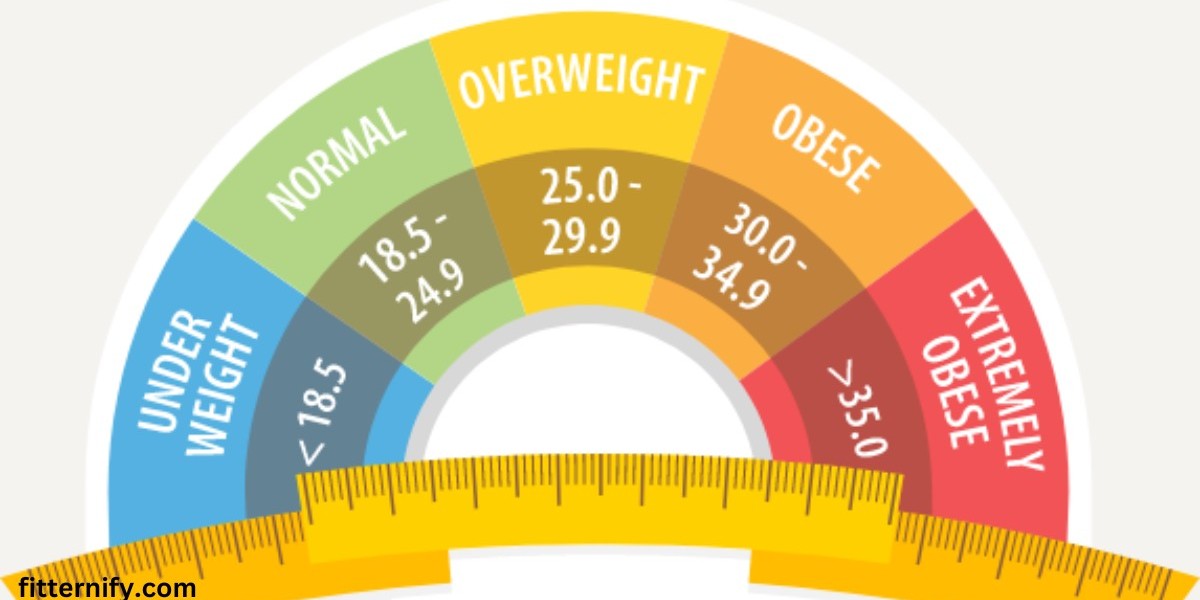One of the key indicators used to assess whether an individual’s body weight is within a healthy range is the Body Mass Index (BMI). For men who are looking to track their health, understanding how the BMI calculator works and how to interpret the results is vital. This article will delve into the BMI calculator for men, how to use it effectively, and its importance in monitoring overall well-being.
What is BMI?
Body Mass Index (BMI) is a simple and widely-used tool for estimating whether an individual has a healthy body weight in relation to their height. The formula used to calculate BMI is:
BMI=weight (kg)height (m)2BMI = \frac{\text{weight (kg)}}{\text{height (m)}^2}
The result of the BMI calculation falls into one of several categories that indicate the overall health of a person. The standard BMI categories, as recognized by the World Health Organization (WHO), are:
- Underweight: BMI less than 18.5
- Normal weight: BMI 18.5 to 24.9
- Overweight: BMI 25 to 29.9
- Obesity: BMI 30 or higher
How Does the BMI Calculator Work for Men?
The BMI calculator for men follows the same principle as the general BMI calculator for men The primary difference is that men typically have more muscle mass compared to women, and muscle weighs more than fat. This factor is important when interpreting the BMI results.
For example, a muscular man with low body fat may have a BMI that falls in the “overweight” or “obese” category, even though his body composition is healthy. That’s why BMI should be used as a screening tool and not as a definitive measure of overall health.
To calculate BMI for men, follow these steps:
Measure your weight: Weigh yourself using a scale, ensuring you are wearing minimal clothing to avoid inaccuracies. The weight should be measured in kilograms.
Measure your height: Stand straight against a wall and measure your height in meters or centimeters.
Apply the BMI formula: Use the formula above, dividing your weight by your height squared. For example, if you weigh 75 kg and are 1.8 meters tall, your BMI would be calculated as:
BMI=75(1.8)2=23.15BMI = \frac{75}{(1.8)^2} = 23.15
This would place you in the "Normal weight" category.
- Interpret the result: Compare your result to the standard BMI categories to understand where your body weight stands.
Why is BMI Important for Men?
BMI is a valuable screening tool for gauging general health and identifying potential risks for certain diseases. For men, BMI can provide insight into whether their weight is within a healthy range for their height. Here are some of the key benefits of calculating BMI for men:
1. Helps Identify Potential Health Risks
Obesity and being overweight can lead to numerous health problems, including heart disease, diabetes, and high blood pressure. By tracking BMI, men can identify if they are at risk for these conditions. For example, a BMI in the overweight or obese category signals the need to address lifestyle changes such as diet and exercise.
2. Supports Goal Setting for Fitness
For men looking to lose weight, gain muscle, or maintain their current weight, BMI can be a useful tool. It gives a snapshot of current weight status, helping to establish realistic fitness goals. Regularly monitoring BMI allows for adjustments to be made to a fitness regimen based on progress.
3. Provides a Baseline for Health Monitoring
BMI is an easy and quick way to assess if weight management strategies are working. By taking measurements over time, men can track trends and evaluate the effectiveness of their weight-related efforts.
BMI Calculator for Men: Benefits and Limitations
While the BMI calculator provides useful information, it has some limitations that should be considered when interpreting results:
Benefits of Using a BMI Calculator for Men:
- Quick and Easy: The BMI calculator is simple to use and provides immediate results.
- Inexpensive: Unlike other health assessments, BMI can be calculated without expensive tests or tools.
- Widely Recognized: It’s a global standard used by healthcare providers, so understanding your BMI can be helpful during medical visits.
Limitations of the BMI Calculator for Men:
- Does Not Distinguish Between Muscle and Fat: Since BMI does not account for muscle mass versus fat, men with higher muscle mass may be classified as overweight or obese even if they have a low body fat percentage.
- Does Not Account for Body Fat Distribution: BMI doesn’t give any indication of where body fat is distributed. Abdominal fat, for example, can pose greater health risks than fat in other areas.
- Does Not Address Gender-Specific Differences: While BMI is useful for both men and women, it does not differentiate between genders. Men generally carry more muscle mass, which affects BMI interpretation.
Improving the Accuracy of BMI for Men
To get a more accurate understanding of your body composition, it’s important to consider other factors in addition to BMI, such as:
Body Fat Percentage: Unlike BMI, body fat percentage measures the proportion of fat in your body and gives a clearer picture of health. You can use skinfold calipers or bioelectrical impedance scales to estimate your body fat percentage.
Waist-to-Hip Ratio: This measurement looks at the circumference of your waist compared to your hips and can be an indicator of fat distribution. A higher waist-to-hip ratio suggests a higher risk of heart disease and other metabolic conditions.
Waist-to-Height Ratio: This ratio may be more reliable than BMI for men. It focuses on abdominal fat and has been shown to correlate more closely with cardiovascular health.
Consulting with a Healthcare Provider: If you’re unsure about how to interpret your BMI, or if you have specific health concerns, it’s always a good idea to speak with a healthcare professional. They can offer more personalized advice and help develop a health plan tailored to your specific needs.
Conclusion
Using a BMI calculator for men is a great starting point for assessing general health and making decisions about fitness and weight management. While it is a simple and widely accepted method, it’s important to remember that BMI alone may not fully capture the complexity of a man’s health or fitness level. Factors such as muscle mass, fat distribution, and overall body composition should also be taken into account.



